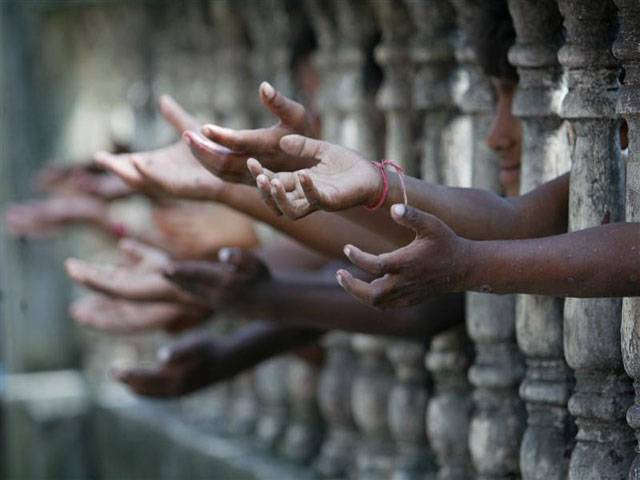Seema Sengupta
India’s age-old discriminatory caste system that has perpetuated economic disparity in the country at an alarming level was once again put under the scanner at the United Nations Human Rights Council’s universal periodic review.
As more than 165 million people continue to suffer from exploitation and varying forms of degrading treatment because of their caste affiliations, New Delhi was hard pressed to defend its position of the nation being inherently empowered with a system of affirmative action to correct the prevailing social ills. With a sizable chunk of the population being excluded from savouring the fruits of democracy due to low social status and the United Nations committee on elimination of racial discrimination having corroborated the frequent occurrence of heinous crimes committed against the underprivileged under the very nose of the administration; human rights organisations have often taken India to task for having failed to efface the distinctions of caste effectively in spite of being the ‘largest practicing democracy’.
Call it racism or anything else; the fact remains that no country realises the gravity of the crisis more than India as she struggles to cope with a primitive concept that has forced millions to live a life of a hereditary criminal. Such practice is in fact not unique to India as millions of additional untouchables are believed to be suffering in other countries across all continents. But then that does not necessarily condone New Delhi’s blunder of opposing the inclusion of caste discrimination in international human rights regime. It is a pity that the same nation that holds Mahatma Gandhi in high esteem for his ‘struggle’ against apartheid - be it in South Africa or on Indian soil, finds it convenient to argue that the International Convention for the Elimination of Racial Discrimination has no jurisdiction over caste-related crimes. Such a position ironically is in complete contrast to the country’s own international obligations and stems from an apprehension over the intrusive nature of any external intervention that may become necessary to put an end to India’s social bickering.
Despite achieving massive demographic, technological and economic advancement; fragmentation of the society on caste, creed and religious line remains an ineluctable feature of the Indian system. The Indian ‘Magna Carta’ failed to extirpate the poisonous social phenomenon of exclusion or restriction based upon inherited status. A slew of preferential schemes designed to end discrimination against the oppressed has failed to take a concrete shape due to political lackadaisicalness and insufficient institutional commitment in addressing this critical issue.
The political leadership might have expressed uniform opinion on the necessity of extinguishing the continuously burning flame that has the potential to destroy India’s fabric permanently; electoral expediency will not let the crisis get a quiet burial - not until drastic and decisive measures are taken to arrest the tendency of mobilising electoral support on the basis of caste and religion.
In the meantime, threadbare analysis of recent surveys on human development has exposed the harrowing fact of the backward classes continuing to languish at the bottom of most indicators of well-being, including household and agricultural incomes, land-ownership, poverty rate, health and education. Such deterioration actually displays the vulnerability of the Indian state in dealing with prejudices and her helplessness in rectifying the wrongs inflicted upon one-fourth of the population. Moreover, the highly publicised slogan of inclusive growth has turned into a mockery for those who are enduring socio-economic deprivation as well as denial of entitlement to several rights on a regular basis.
These disproportionately destitute people suffering from humiliation and indignity are prone to seduction and often end up on the odd side of law. It is therefore not surprising that the subaltern class remains the primary source of foot soldiers supplied to sustain the insurgency movements gripping various parts of the Indian state. Furthermore, the long term economic implications of nurturing a society that promotes a system whereby the choice of occupation rests on social hierarchy instead of merit is far reaching. This not only leads to under utilisation of resources but also encourages low productivity.
To rectify the errors embedded in India’s social setup, honest re-evaluation and appraisal of policy initiatives periodically is the key to success. Re-hauling the existing caste definitions and altering the methodology of identifying recipients for state benefit coupled with big doses of investment to expand social opportunities under strict legal protection, especially in the rural hinterland, can usher a new sunrise. Alas, the political class in ‘modern’ India is often reluctant to bite the bullet and prefer deflecting responsibility by taking refuge under the supposedly progressive legislations that have utterly failed to deliver during the last sixty years.
–Arab News
Saturday, April 20, 2024
India’s caste politics draws flak at UN rights body

Watercourse project to help increase crop yields in Punjab
12:57 PM | April 20, 2024
Justice Ishtiaq Ibrahim sworn in as PHC chief justice
12:54 PM | April 20, 2024
817 held for selling Roti at higher rate in 5 days
April 20, 2024
Another westerly wave to enter in Balochistan on April 25
12:39 PM | April 20, 2024
Policitising Tragedy
April 20, 2024
Tehran to Rafah
April 20, 2024
A New Leaf
April 20, 2024
A Tense Neighbourhood
April 19, 2024
Dubai Underwater
April 19, 2024
Dangers of Deepfakes
April 20, 2024
Feudalism
April 20, 2024
Kite tragedy
April 19, 2024
Discipline dilemma
April 19, 2024
Urgent plea
April 19, 2024
ePaper - Nawaiwaqt
Advertisement
Nawaiwaqt Group | Copyright © 2024





